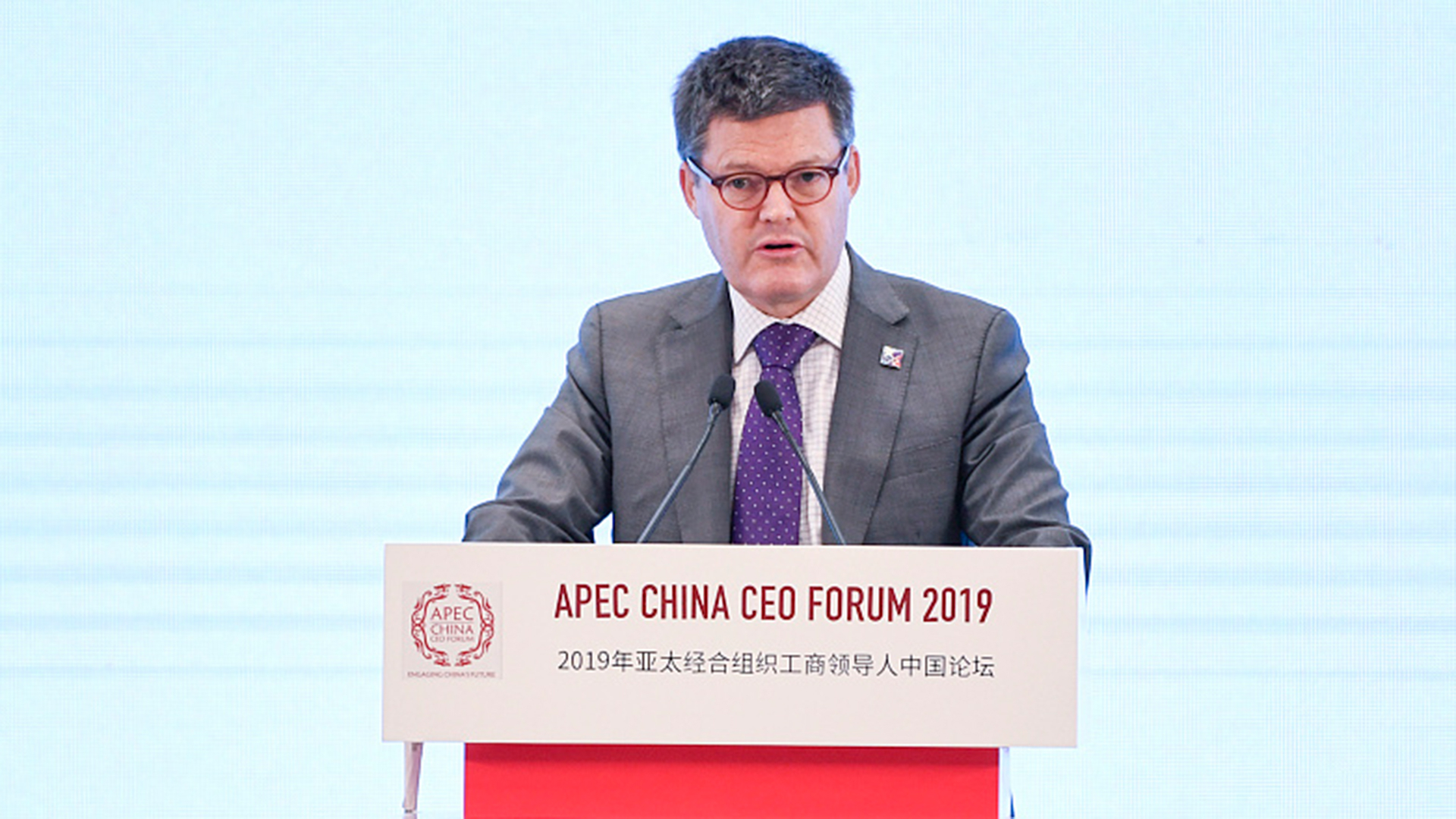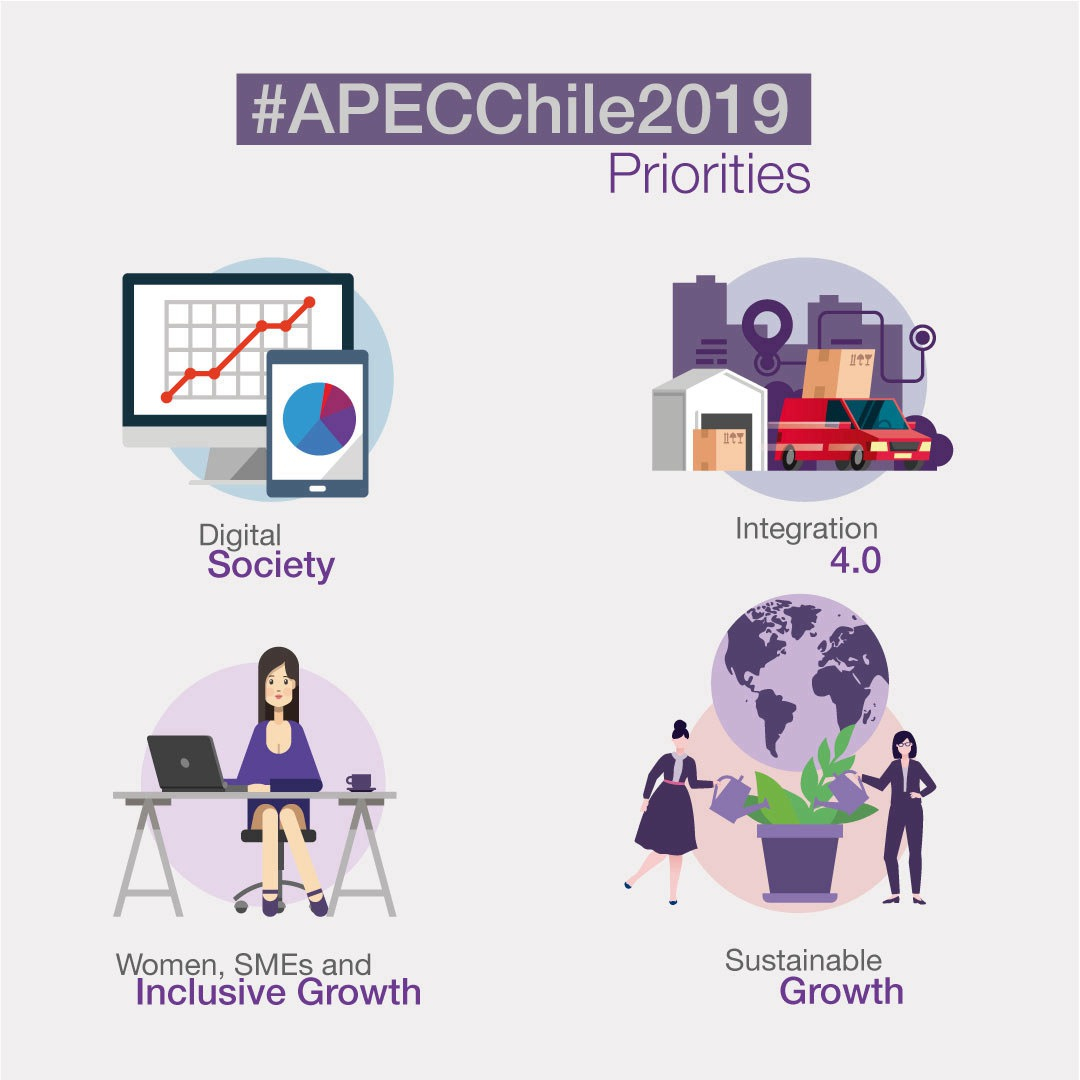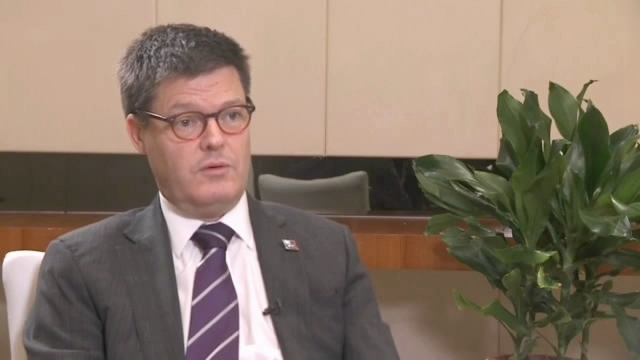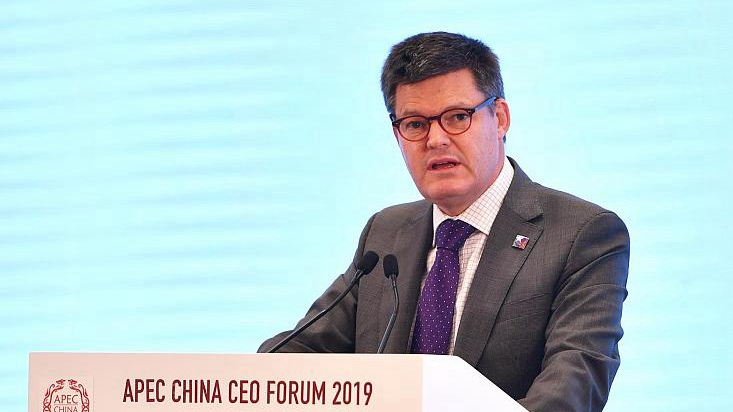

Asia-Pacific Economic Cooperation (APEC) is celebrating its 30th anniversary this year. It has made lots of achievements in trade and investment facilitation in the Asia-Pacific region.
Chile hosted APEC in 2004 and hosts it again this year. Mathias Francke, the APEC 2019 SOM chair, shares his views on the organization.
Francke on APEC
Chile has chosen four priority areas to achieve deliverables in 2019, including the digital society, integration 4.0, women, SMEs and inclusive growth, as well as sustainable growth.
“On the process of discussing and preparing the priorities, we have consultation with the private sector, business, the society, academia and also with other economies,” Francke said.

Chile has chosen four priority areas to achieve concrete deliverables in 2019. /Photo by APEC
Regarding the priority of women empowerment, Francke said this is “the first time an economy is putting women as a priority. And we are very proud of that.”
“We want to take a step further. And I want to have a very strong outcome by November’s meeting. So we can have a roadmap to empower women. So the economies can take actions in the next 10 years among women empowerment,” he forecasted.
Aside from women empowerment, Francke highlights the priority of sustainable development, regarding it as a big economic problem as well as an environmental issue.
Based on his words, the meeting will discuss problems like marine debris and undersea plastics, how to avoid more plastics getting into the sea, and illegal fishing.
As APEC turns 30, Francke considers November’s meeting a good opportunity to recap its achievements during the past three decades. He also mentioned that “we are in the process of the defining the post-2020 agenda,” confirming that APEC will focus on inclusiveness, sustainability and comprehensive development.

Mathias Francke, APEC 2019 SOM chair /CGTN Photo
Francke on Chile development and China-Chile relationship
According to APEC's website, Chile has 26 trade agreements with 64 markets, and Chilean exports to APEC members have grown 8 percent per year since 1994.
“Our economy prepares for development. Development has to be sustainable, has to be comprehensive, has to be inclusive,” he said, adding that Chile has been developing infrastructures, telecommunications and setting agendas to push the growth of business and foreign investment.
China is Chile’s biggest trading partner, and China’s investments in Chile are growing as well. Francke described China as an important friend for Chile, adding that Chile is eager for more investments and technologies from China.
“We want more investment from China. We want more technologies. And we are in the process of tendering for the next generation of mobile networks – the 5G. And China is one of the major competitors in the market. We're looking forward to [the development of] 5G technology in Chile,” he said.
Meanwhile, Francke appreciated China’s support. “China has expressed strong support for our priorities this year. And we have seen that support in congregated actions. So we are grateful for the role that China has been playing,” he noted.
Francke on globalization
At the APEC China CEO Forum in Hangzhou this week, Francke said he was surprised by Hangzhou’s development.

Mathias Francke, APEC 2019 SOM chair /VCG Photo
“It's a very interesting city. I’m very interested in what the city's doing, not only in terms of 5G networks but also in terms of the city brain, the electric buses, the sustainable city that it is becoming.”
The main takeaway Francke will bring back to Chile is the strong commitment of “China on the need of open trade, liberal economic regimes and globalization.”
“There is a sentiment that globalization is here,” Francke said. “We need to have more open markets, we need to facilitate trade … and it's important to have an inclusive development and an inclusive growth.”

Copyright © 2018 CGTN. Beijing ICP prepared NO.16065310-3
Copyright © 2018 CGTN. Beijing ICP prepared NO.16065310-3